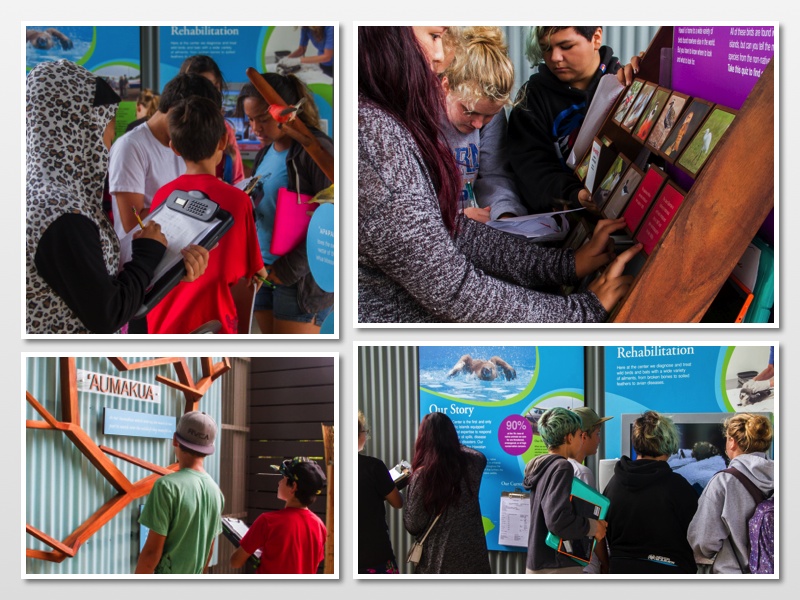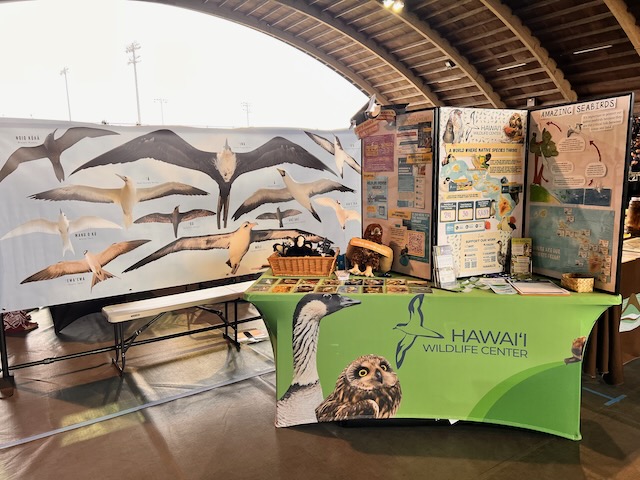
EDUCATION AND OUTREACH
Promoting interest in native wildlife and engagement in wildlife conservation
Ho‘opulama Science and Discovery Center
Our Ho‘opulama Science and Discovery Center offers interactive learning opportunities that you are more than welcome to take advantage of for your own educational curriculum. Click here for more information.
If you would like additional resources for your self-guided program, HWC offers a 13-page companion workbook with questions for each exhibit that guide students through the Science and Discovery Center. The current workbook is best for grades 6 through 12. Elementary and college level workbooks are still in development.
Looking for fun things to do at home or to print out for your class? Check out our Activities Page!

Group Visits
Group visits let students interact with our staff to learn more about wildlife rehabilitation and conservation issues. Education programs are led by our Community Coordinator and typically include a mix of education, games, and activities that touch on native winged species (birds and bats), our wildlife rehabilitation work, and a virtual tour of our facility.
Program information and scheduling can be done through our group visit request form. There is currently no fee for educational visits, donations are encouraged.
Virtual Content
If you’re looking or virtual content, check out our presentations from the Hawaiʻi Island Festival of Birds. Virtual explorations, book readings, conservation talks and more are available. Click here.

Outreach Events
Outreach events allow us to take our message on the road! When our schedules allow, we love to participate in community events. We travel with our trusty display board and have a variety of interactive activities at our booths. ʻ
To advise us of events, contact our Community Coordinator by email: angela@hawaiiwildlifecenter.org.
